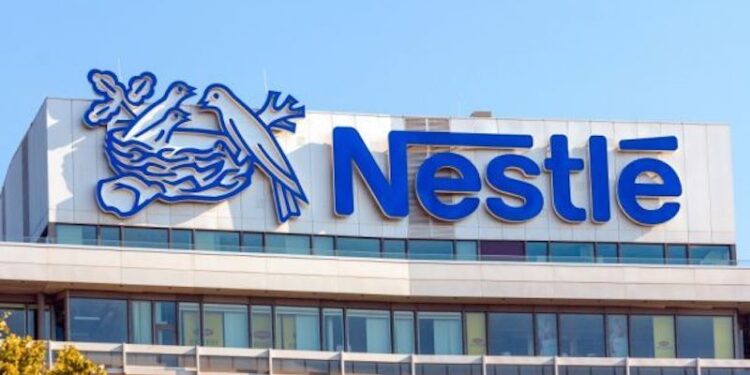Nestlé Nigeria Plc has bounced back to profitability in the third quarter of 2025, recording a pre-tax profit of N39.6 billion, marking a sharp turnaround from the N2.9 billion loss posted in the same period of 2024. This recovery signals renewed investor confidence in one of Nigeria’s largest fast-moving consumer goods (FMCG) companies after a tough year marked by currency devaluation and high inflation.
According to the company’s unaudited financial report for the period ended September 30, 2025, Nestlé’s nine-month pre-tax profit rose to N127.96 billion, compared to a loss of N255.38 billion recorded in the corresponding period of 2024. This performance was mainly supported by strong revenue growth across its food and beverage segments, cost optimisation, and lower finance expenses.
The multinational firm, led by Managing Director and Chief Executive Officer, Wassim Elhusseini, reported that Q3 2025 revenue grew by 17.5 per cent year-on-year to N303.4 billion, up from N258.3 billion in the same quarter of 2024. For the nine-month period (January to September 2025), revenue climbed 32.9 per cent to N884.5 billion, compared to N665.3 billion recorded in the previous year.
Nestlé’s strong revenue growth was largely driven by the outstanding performance of its core brands such as Maggi, Milo, Golden Morn, Cerelac, Nescafé, and Nestlé Pure Life. These products continued to enjoy customer loyalty across Nigerian households, allowing the company to implement modest price increases without significantly affecting sales volumes.
In the third quarter, gross profit rose 29 per cent to N101.92 billion, outpacing revenue growth. The company’s gross margin also improved to 33.6 per cent, up from 30.6 per cent in Q3 2024, showing that production efficiency, cost control, and better product mix contributed to improved profitability at the manufacturing level.
However, the company faced rising costs in marketing, logistics, and administrative operations, which slightly reduced its overall profit margins. Operating profit increased by 6.6 per cent to N50.90 billion, but the operating margin dropped to 16.8 per cent, from 18.5 per cent in 2024. Analysts say the company’s heavy marketing and distribution expenses, alongside inflationary pressures on raw materials, accounted for the softer margins.
Despite this, the most notable improvement came from the sharp drop in finance costs, which fell 77.6 per cent to N11.34 billion, from N50.62 billion in the same period of 2024. This decline was linked to reduced foreign exchange losses, lower borrowing levels, and the repayment of high-interest loans. The easing of FX volatility and better debt management provided a major boost to the company’s bottom line.
Nestlé’s post-tax profit for the quarter stood at N21.91 billion, compared to a loss of N7.36 billion a year earlier, while earnings per share (EPS) jumped to N27.64 from a negative N9.28 in 2024.
On the balance sheet, total assets were valued at N847.30 billion, a slight decline from N858.70 billion as of December 2024. The company attributed this to repayments of supplier advances and debt settlements. Total liabilities decreased by 8.8 per cent to N867.00 billion, reflecting a 20.3 per cent (N132.7 billion) reduction in interest-bearing loans and borrowings.
While Nestlé Nigeria still has a negative equity position of N19.70 billion, this marks a major improvement from the N92.29 billion negative equity reported at the beginning of 2025. The improvement was due to profit retention and debt reduction, which have gradually strengthened the company’s financial base.
Market analysts view Nestlé’s turnaround as evidence of its resilience amid Nigeria’s challenging economic environment. With inflation staying above 27 per cent and exchange rate pressures still persistent, the company’s ability to stabilise operations and return to profitability underscores the strength of its brand and management strategy.
Industry observers also expect Nestlé to maintain this positive trend in the final quarter of the year as consumer spending gradually recovers and foreign exchange conditions continue to improve. However, analysts caution that maintaining profit margins will require continued discipline in managing costs and adapting to inflationary trends affecting production inputs and distribution expenses.
Nestlé Nigeria’s performance in Q3 2025 suggests the company is on a recovery path after a turbulent 2024. With strong revenue growth, improved operational efficiency, and a sharp drop in finance costs, the food and beverage giant appears to be rebuilding profitability, liquidity, and investor confidence. The company’s efforts to strengthen its balance sheet and restore positive equity could position it for stronger full-year results in 2025.
